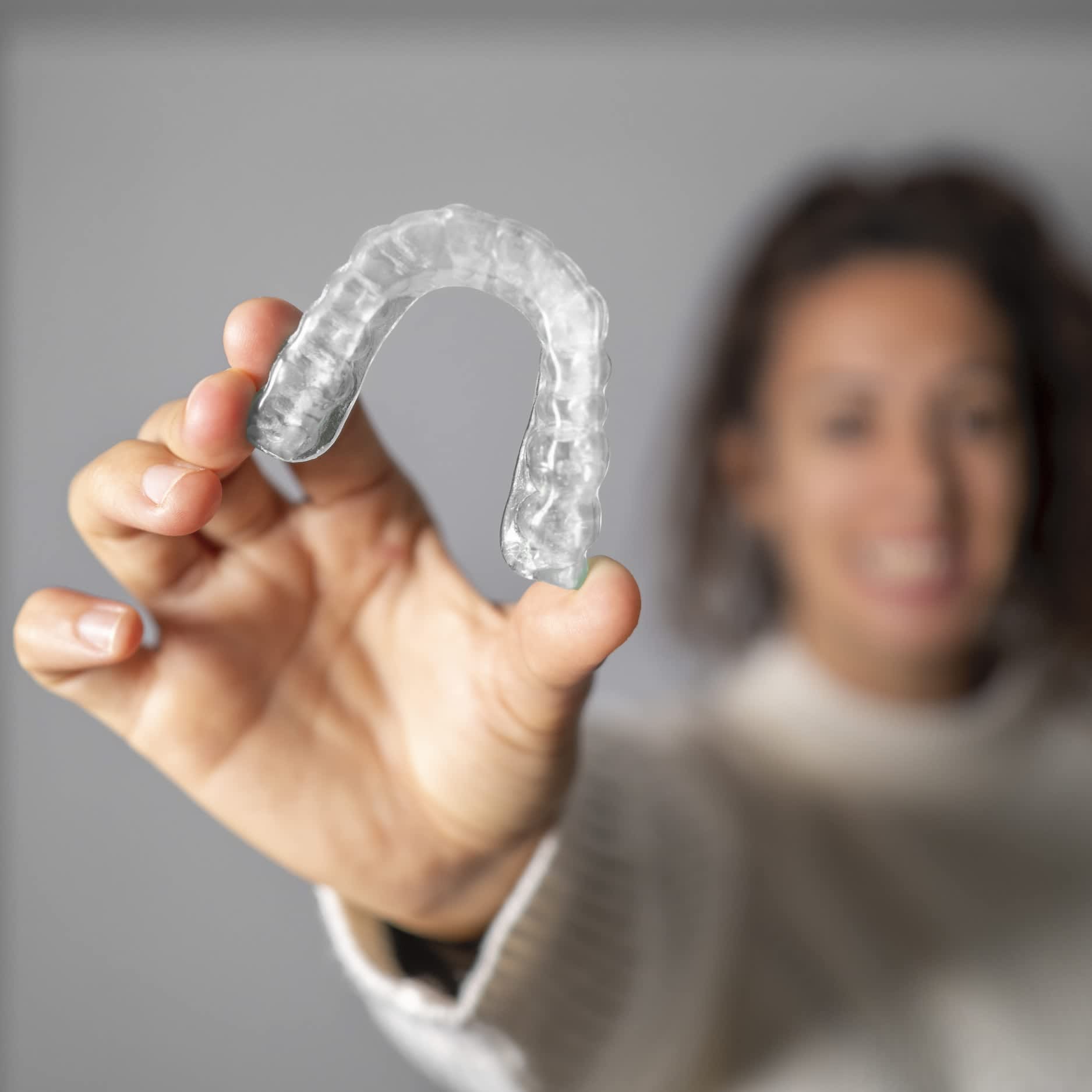
- POPSUGAR Australia
- Fitness
- Not Properly Cleaning Your Retainers Can Actually Do Damage to Your Teeth
Not Properly Cleaning Your Retainers Can Actually Do Damage to Your Teeth

If you follow your orthodontist’s orders, you likely pop in your retainers every single night – and kudos, because that step is crucial for preventing your teeth from shifting. But, are you also cleaning them the right way?
Yes, the cleanliness of your retainers, or lack thereof, can actually have an impact on the over health of your teeth.
“Putting dirty retainers in your mouth is not only gross to think about, but also can cause several health issues,” Dr. Raina Chandiramani, a board-certified orthodontist practicing in Louisville, Kentucky, confirms. “If not cleaned well, the sugar and bacteria will accumulate on the retainer and remain on your teeth for hours without any salivary cleansing and can decay the enamel of your teeth.”
Retainers can harbor bacteria from simply being in your mouth, Dr. Chandiramni says, but also when they’re outside of your mouth – like if you’ve ever wrapped them in a napkin and stuck them in your purse. What’s more, if your retainer case (theoretically their “safe place”), isn’t cleaned well enough, your retainers can even pick up bacteria there, too.
That means you’ll want to clean your retainers before you put them in your mouth and after you take them out, too.
Related: Plaque Can Contain 1,000 Different Bacteria – Here’s How to Keep Your Teeth Clean
Dr. Chandiramani recommends cleaning your retainer with toothpaste and a toothbrush – which should be different from the one you use to clean your teeth.
“After brushing your teeth in the morning and at night, use your retainer toothbrush and a bit of toothpaste to manually brush your retainers, Dr. Chandiramani says.
Occasionally, you might want to give your retainers a deep clean, perhaps to remove stains. For that, Dr. Chandiramani says you can use a cleaning tablet and soak them until they’re clean.
Mouthwash can be used to remove smells from retainers, but check over the ingredients list and be sure your mouthwash does not contain alcohol, which can distort plastic retainers.
On that note, Dr. Chandiramani says you’ll also want to avoid any strong chemical cleansers and heat with plastic retainers – if the plastic becomes distorted, they might not fit your teeth properly, defeating the entire purpose of retainers.
Metal retainers will require the same best practices, but if your metal retainers are glued to the back of your teeth, flossing should get even more attention to remove and prevent bacteria and plaque. “If you have a fixed retainer, you should be sure to learn how to floss under it or use a water flosser like the Waterpik to keep it clean and keep the teeth and bone healthy,” Dr. Chandiramani says.
And if you have any questions about retainer care, don’t hesitate to reach out to your orthodontist or your dentist for personalized guidance.
Click here for more health and wellness stories, tips, and news.

